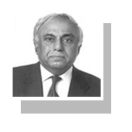Published in The News on December 05, 2021
ISLAMABAD: At least 82 percent women in Pakistan are unbanked — people without a bank account, according to a non-profit firm, leaving them without basic financial services, and putting their social rights at risk.
Inez Murray, CEO Financial Alliance for Women said access to a bank account in Pakistan has grown from to 18 percent in 2020 from 4 percent in 2008.
“While this is a very positive trajectory, it means that 82 percent of women in Pakistan still do not have access to a formal bank account,” Murray said at a online workshop on ‘Financial Inclusion Gender Data in Pakistan: Today and Tomorrow’
During the workshop, findings of a recent study conducted by Geneva-based ConsumerCentrix (CCX), a consulting firm, to map national ecosystem related to gender data on financial inclusion were also shared.
The study highlighted that the untapped opportunity in the women’s market is valued at Rs114 billion.
“Women’s financial inclusion is well established globally to be one of the most powerful levers for bringing households out of poverty,” Murray said.
“For better policy formulation and encouragement of commercial involvement, data and the deeper insights yielded are crucial.”
Sima Kamil, deputy governor of State bank of Pakistan said there are 82 million unique bank accounts in Pakistan as of December 2020, out of which 21 million belong to women.
“This represents 33 percent of adult women having a bank account.”
She said women’s financial inclusion has been one of the top priorities of the National Financial Inclusion Strategy (NFIS) and was reinforced by the newly developed Banking on Equality
policy, which was launched in September, and has introduced measures for embedding a cross cutting gender lens in policies and practices of financial institutions.
“These include promotion of gender diversity in financial institutions and their access points, introduction of women centric products and targeted outreach, establishment of women champions at all touch points, and formation of a policy forum on gender and finance,” she added.
“One other important pillar of this policy is collection of robust gender-disaggregated data and setting targets for financial institutions.
I am glad that this study will supplement SBP’s fundamental focus on gender disaggregated data, emphasized under our Banking on Equality policy.”
Dr. Shamshad Akhtar, chairperson Karandaaz said the case for including women in the formal financial system is not based on a social or moral argument alone but also on the fact that women present a viable business proposition for service providers.
According to a Boston Consulting Group study, women control more than $20 trillion in consumer spending globally and are increasingly becoming a major force as entrepreneurs running small and medium enterprises.




